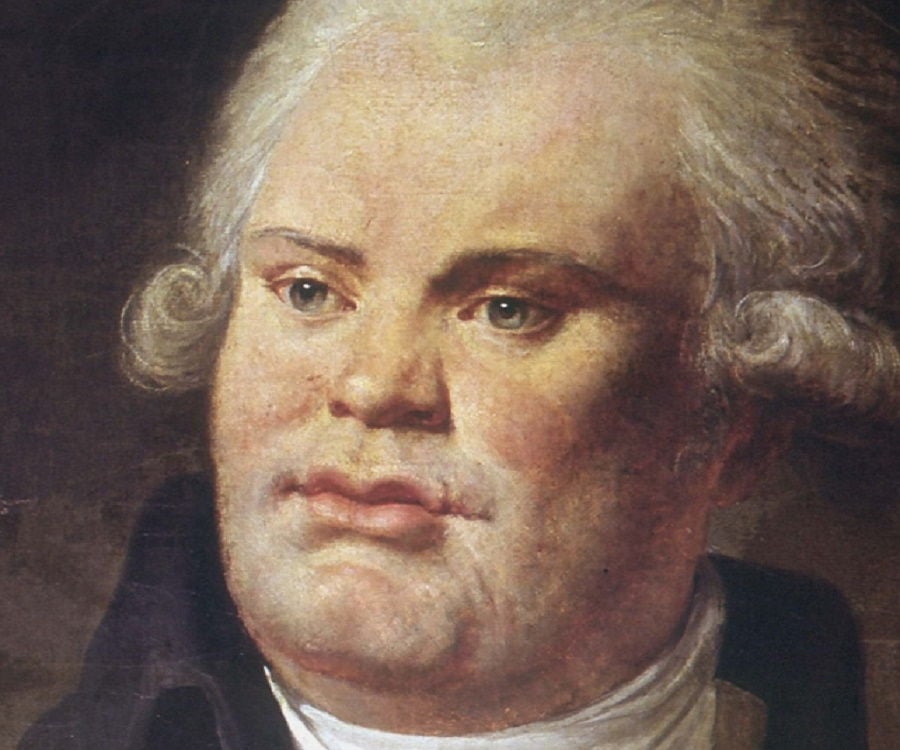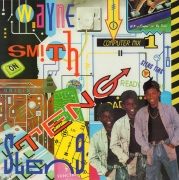Vincent Van Goatse posted:This was before the Columbian Exchange so they didn't even have any chips yet. Just gravy. Gravy makes the bully beef go down faster.
|
|
|
|
|

|
| # ? Jun 10, 2024 16:07 |
|
https://twitter.com/DrLindseyFitz/status/1167050880170037248 La Terreur is good now
|
|
|
|
zoux posted:https://twitter.com/DrLindseyFitz/status/1167050880170037248 My French fashion history is weak but I vaguely recall this was part of a wider post terror style popular among the surviving French aristocrats. So they would also wear stuff like red ribbons around their necks. Generally the idea was to rub everyone else's noses in the fact that they lived and are still rich as poo poo so gently caress you edit: found an article summarizing the trend: https://www.ozy.com/flashback/the-outrageous-french-aristocrats-who-mocked-the-reign-of-terror/88476 quote:As with most Parisian high-society gatherings, the Bal des Victimes had a tough door policy. But unlike today, when exclusive party lists are made up of fashion glitterati and movie stars, the guests at this event all had just one thing in common: One of their relatives had been guillotined during the Reign of Terror. Squalid fucked around with this message at 16:35 on Aug 30, 2019 |
|
|
|
Squalid posted:My French fashion history is weak but I vaguely recall this was part of a wider post terror style popular among the surviving French aristocrats. So they would also wear stuff like red ribbons around their necks. Generally the idea was to rub everyone else's noses in the fact that they lived and are still rich as poo poo so gently caress you Well I guess it wasn't all good.
|
|
|
|
Yikes that's another one of those history things that you'd consider a bit unrealistic in a novel
|
|
|
|
zoux posted:https://twitter.com/DrLindseyFitz/status/1167050880170037248 is that an unpopular opinion? gently caress the conservatives imo. e: daydrinking and also working on some revolution poo poo for school didn't mean to start a Did Robespierre Do Anything Wrong derail plz ignore this post Edgar Allen Ho fucked around with this message at 17:31 on Aug 30, 2019 |
|
|
|
Oh no. No no no. Once they got all the rich people it was time for ideological purges by people insufficiently "revolutionary"
zoux fucked around with this message at 17:28 on Aug 30, 2019 |
|
|
|
Generally the point where many people are being rushed to executions with shaky at best legal processes involved isn't really something to be admired. Objectively, Robespierre either executed far too many people which inspired a coup against him, or he didn't execute nearly enough, since the central objective of killing enough people to destroy all potential internal enemies was not achieved.
|
|
|
|
yadda yadda mark twain two reigns of terror
|
|
|
|
I think Danton is my favorite French Revolutionary There's a man who knew when to use terror, and when not to. If I remember right I also don't think he ever did anything monumentally stupid like declare war on the rest of Europe in the middle of a chaotic revolution. also look at that lovely mug 
|
|
|
|
Squalid posted:I think Danton is my favorite French Revolutionary He certainly had some good last words " "I leave it all in a frightful welter," he said; "not a man of them has an idea of government. Robespierre will follow me; he is dragged down by me. Ah, better be a poor fisherman than meddle with the government of men!" Danton's last words were addressed to his executioner. He said to him: "Don't forget to show my head to the people. It's well worth seeing.""
|
|
|
|
Squalid posted:also look at that lovely mug
|
|
|
|
He also towered a head over everyone, you have to know that to do him justice.
|
|
|
|
I was going to say that violent revolutions rarely stop when the regime is overthrown and they end up eating each other, but is that true on balance? I wouldn't necessarily count wars for independence as revolutions, we didn't exactly hang George III in 1783
|
|
|
|
Robespierre was real good while he was just another legislator but he kind lost it as an executive. Basically I like all the people who were against the war with Austria in 1792, and people who were tried to limit or end the reign of terror. If France hadn't gone to war in '92 there probably would have never been a terror. No slaughtering prisoners awaiting trial, without conscription there would be no uprising in the Vendee, no generals getting their heads chopped off for suspected collaboration with the enemy, etc. It was really dumb and Robespierre was one of the few French leaders at the time who realized just how bad an idea war was
|
|
|
|
Were I a Girondin, I would have simply converted the young Bonaparte to the enlightment ideals of the Revolution and had him fight the Hapsburgs, thus winning.
|
|
|
|
Squalid posted:Robespierre was real good while he was just another legislator but he kind lost it as an executive. Basically I like all the people who were against the war with Austria in 1792, and people who were tried to limit or end the reign of terror. Youre assuming Austria and co would have just let the radical regicidal regime in France, which had just offed an Austrian Archduchess, alone if they hadnt declared war...
|
|
|
|
JcDent posted:By the way, do we have WWII stories of liberated locals helping out the Allies or whatever? Like, a US unit liberates Pomme-dy-Terre and some old shepherd comes "oui oui, amis Americaines, ze Boche, zey have a posission in ze hill, but me, I know some path secraite, follow moi" or something. Quoting this not only for the — 'ow you zay — incroyable French accent but also a followup. If Allied forces making their way through France came in contact with a rural village like this and a local wanted to point out a Nazi position or give them a fresh croissant or whatever, would it be more likely that the local would know English or one of the soldiers would know French? Would an American or British platoon have an interpreter with them? I assume the Canadians would have a certain percentage of Quebecois in their troop so it wouldn't be an issue.
|
|
|
zoux posted:I was going to say that violent revolutions rarely stop when the regime is overthrown and they end up eating each other, but is that true on balance? I wouldn't necessarily count wars for independence as revolutions, we didn't exactly hang George III in 1783 It depends on the motivation and whether the people leading the revolution think that killing the people in charge is not only okay, but necessary. The American Revolution took place an ocean away from the main government they were fighting against, but the Continental Congress didn't start demanding the execution of loyalists. George Washington and Thomas Jefferson weren't saying to behead the governors who didn't join their side. Seizures of property and exile, yes, but not murder. When the Crown acquiesced to independence, the war was over. British soldiers went home, 80+ million loyalists remained and became Americans. Relations even remained positive enough that both nations engaged in trade and diplomatic relations immediately after the war ended, though the War of 1812 was a rocky moment. With the French Revolution, there was a sense that the royals and aristocrats were directly and personally responsible for everything and people like Robespierre hyped the people up into wanting heads on pikes. He glorified the idea of terrorizing the populace to keep the peace after a revolution, and the bloody revolution had created factions that were equally willing to kill for power; when you make your revolution about storming the palace and killing the people in charge, it becomes hard to stick around as a peaceful-minded group and maintain any semblance of authority. Now you have a government where all the different people vying for power are the kind who are fine with killing for it, and killing becomes the order of the day.
|
|
|
|
|
feedmegin posted:Youre assuming Austria and co would have just let the radical regicidal regime in France, which had just offed an Austrian Archduchess, alone if they hadnt declared war... The king and Queen weren't executed until 1793, and it was justified by their communication with Austrians during the war. If there had been no war, there would have been no justification. The Austrians and Prussians prosecuted the war really half heartedly; they just didn't seem that invested. The French leadership meanwhile are bizarrely pro-war, both Monarchists and revolutionaries. Maybe there would have been a war eventually anyway, but it could have been delayed years while France took some time to sort its poo poo out. I don’t see any reason to believe war was inevitable except for the fact that all the French wanted it for some reason.
|
|
|
|
chitoryu12 posted:It depends on the motivation and whether the people leading the revolution think that killing the people in charge is not only okay, but necessary. The American Revolution took place an ocean away from the main government they were fighting against, but the Continental Congress didn't start demanding the execution of loyalists. George Washington and Thomas Jefferson weren't saying to behead the governors who didn't join their side. Seizures of property and exile, yes, but not murder. When the Crown acquiesced to independence, the war was over. British soldiers went home, 80+ million loyalists remained and became Americans. Relations even remained positive enough that both nations engaged in trade and diplomatic relations immediately after the war ended, though the War of 1812 was a rocky moment. 80+ millions?
|
|
|
|
ninjahedgehog posted:If Allied forces making their way through France came in contact with a rural village like this and a local wanted to point out a Nazi position or give them a fresh croissant or whatever, would it be more likely that the local would know English or one of the soldiers would know French? Would an American or British platoon have an interpreter with them? I assume the Canadians would have a certain percentage of Quebecois in their troop so it wouldn't be an issue. There's a reasonable chance a British officer would have been taught French at school; it's the 'default' foreign language here like Spanish would be in America. How well he remembered it, mind you. ..
|
|
|
ChubbyChecker posted:80+ millions? I completely hosed up that typing. It was over 80 percent of the loyalists.
|
|
|
|
|
Edgar Allen Ho posted:He also towered a head over everyone, you have to know that to do him justice. I mean, you know, not in the end.
|
|
|
|
Squalid posted:If France hadn't gone to war in '92 there probably would have never been a terror.
|
|
|
|
chitoryu12 posted:heads on pikes. guys that'd gently caress up the balance so bad
|
|
|
|
When they declared war, they weren't even regicidal yet, although the tension was high between the elected government and the king exerting the powers appointed him in the constitution. I feel like one big mistake for the stability of the new constitution was all of the national assembly who wrote the constitution abstaining from being part of the new government, so nobody respected it. There's a lot of takes on the revolution that wind up casting retroactive motivations on people. What I'm really not clear on is at what point did people start calling it a revolution (and in some respects the word revolution is itself kinda vague). There wasn't an armed attack on the established government until the war against Austria had already started, and before that, you have fairly straightforward legal precedings from regional courts to the estates general to the national assembly to the new constitution and elections with only a brief disruption over a venue. It seems overly generous to call much of that a revolution, but there were also concurrent yet unaffiliated riots and uprisings that didn't seem to have much to do with the actual transition of power.
|
|
|
|
HEY GUNS posted:reminds me of the subset of the modern versions of the functionalist argument that make a similar claim about the holocaust, that the war had a radicalizing effect on soldiers What’s clear is that war upped the stakes for everybody. If the Prussians has occupied Paris that might have been it for the Revolution. The higher the risk, the more severe the measures you can justify. I think the September massacres mark the beginning of the terror, and those were pretty much inarguably inspired by the fear defeat in the war would result in foreign backed counter revolutionaries installed into power, so it became necessary to kill them before that could happen. If you want to consolidate a revolution, what you really want to do is LOWER the stakes, not up them. If everyone is afraid for their heads they in turn will feel justified in using violence to protect themselves. It’s not a formula for stable government.
|
|
|
|
Squalid posted:I think Danton is my favorite French Revolutionary cosigned. he's also the star of the best french revolution movie, Danton starring Gérard Depardieu
|
|
|
|
You should really listen to the revolutions podcast episodes leading up to the war. It really seems all side and factions involved had terribly idiotic diplomacy. Then again, the When Diplomacy Fails podcast makes me think incompetent or short sighted diplomacy is the normal state of things.
|
|
|
|
It's all downhill from Gaius Laenas
|
|
|
|
Politics is the continuation of chaos by other means.
|
|
|
|
I love Danton too. Rude crude French revolutionary dude.
|
|
|
|
Squalid posted:If you want to consolidate a revolution, what you really want to do is LOWER the stakes, not up them. If everyone is afraid for their heads they in turn will feel justified in using violence to protect themselves. It’s not a formula for stable government.
|
|
|
|
|
chitoryu12 posted:It depends on the motivation and whether the people leading the revolution think that killing the people in charge is not only okay, but necessary. The American Revolution took place an ocean away from the main government they were fighting against, but the Continental Congress didn't start demanding the execution of loyalists. George Washington and Thomas Jefferson weren't saying to behead the governors who didn't join their side. Seizures of property and exile, yes, but not murder. When the Crown acquiesced to independence, the war was over. British soldiers went home, 80+ million loyalists remained and became Americans. Relations even remained positive enough that both nations engaged in trade and diplomatic relations immediately after the war ended, though the War of 1812 was a rocky moment. That's because the American revolutionary leaders didn't want to dismantle the unjust system, they wanted to take the place of those at the top of it. They were fans of democracy and freedom in the classical sense, i.e. for rich slave-owners
|
|
|
|
Sleng Teng posted:cosigned. he's also the star of the best french revolution movie, Danton starring Gérard Depardieu Wajda made sure that all the Cordeliers (and other allies of Danton) in the film were played by Frenchmen, while all the Jacobins were played by Poles. The two groups were supposed to keep to themselves, not intermingle with each other, and thus make their distrust and distance feel more real and organic.
|
|
|
|
Tevery Best posted:all the Jacobins were played by Poles.
|
|
|
|
 Russian refugee, 1941 (Colorized)
|
|
|
|
It always throws me off how french names are spelled so counter-intuitively from how they sound. I can barely recognize any names from the podcast when I see them written out.GotLag posted:That's because the American revolutionary leaders didn't want to dismantle the unjust system, they wanted to take the place of those at the top of it. It was a war over representative government. England had pretty strong democratic traditions (for the time) where men with property could get a say in how they were governed, and the colonies themselves had a number of self-governed institutions, so that's what gave them the idea that there was a reason to not just accept things when England levied some extra taxes and tried cracking down on non-mercantilist trade. It might seem like a smaller thing in the grand scheme of things, but that's what mattered to them at the time. That (and catholicism) was what the English Civil War was about 120 years before, and America's success inspired most future revolutions over the next century towards a similar sort of representative government, with the development of philosophy over human rights and whatnot giving future states higher goals to shoot for, at least if they didn't devolve into dictatorships or wind up abrogating people's rights (usually by making them dead). With the weird little exception of Haiti, which wound up hitting on both the more "normal" bit of local elites fighting for local control and of slaves fighting for basic freedom from the most brutal conditions on the planet (and sometimes championing monarchism while they were at it) and both sides rounding out the whole thing with a wee bit of genocide.
|
|
|
|

|
| # ? Jun 10, 2024 16:07 |
|
SlothfulCobra posted:It always throws me off how french names are spelled so counter-intuitively from how they sound. I can barely recognize any names from the podcast when I see them written out. French does have spelling rules, and once you get a middling-sized vocabulary you can make a pretty good guess at how to pronounce a word you've read, or how to spell a word you've heard. Those spelling rules are just inordinately fond of letters that affect how other letters are pronounced rather than contributing directly themselves.
|
|
|

































